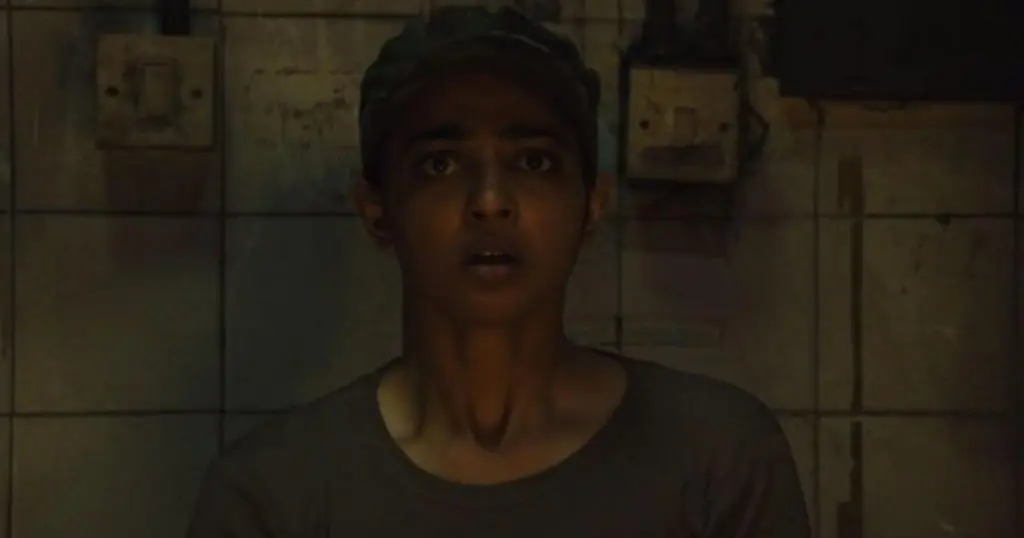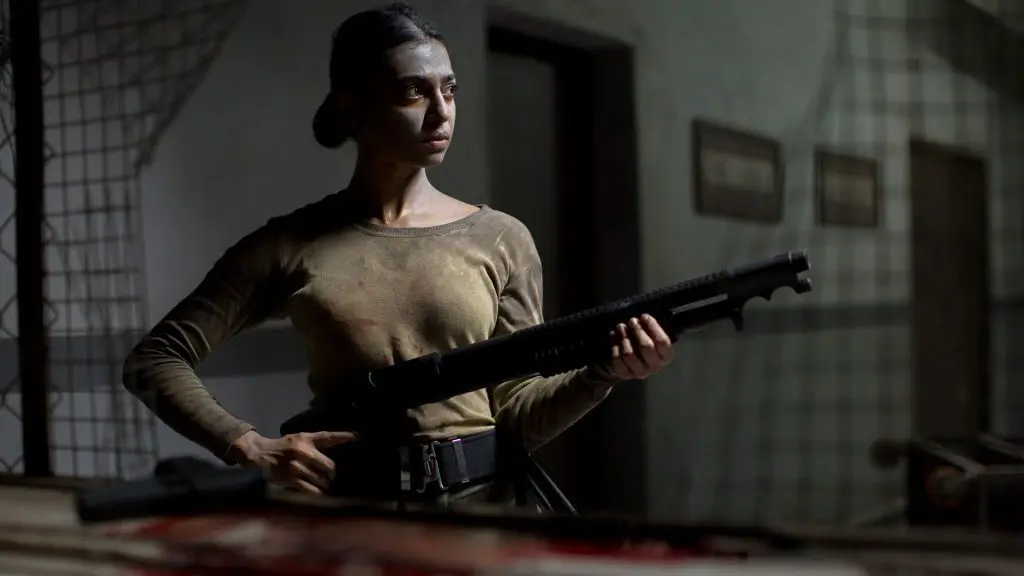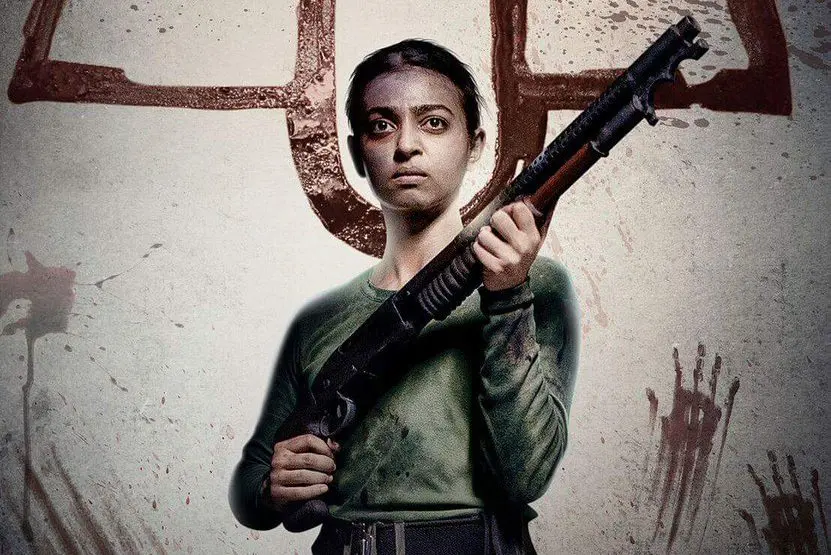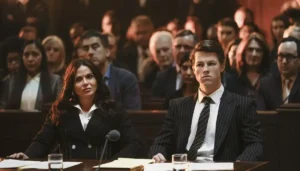Summary
Hindi action horror (co-produced with Americans and directed by a Brit) set in the near future in the world of anti-terrorism interrogation, where not everyone is what they seem.
Ghoul is set in a version of India which is ruled by the military and religious prejudice; presumably in the near future (nothing looks terribly different), as no date is presented. Anyone working or talking against the state is taken by the “protection squads” to one of many secret interrogation centres; it is one of them where the story takes place.
Radhike Apte plays Nida Rahim, a new recruit. She had high scores at the academy in her interrogation tests, and so she is assigned to a team who will be attempting to crack Ali Saeed (a very scary Mahesh Balraj), a known “terrorist” leader. Rahim is considered to be especially patriotic too, as she has reported her own father. He had considered her to be naive. Interestingly, the viewer doesn’t get to see Rahim do much interrogating, but we do see her question her own sense (and senses) as the story progresses.
Apte is very well chosen for her role in Ghoul, and plays it well: she does come across as both naive and openminded at times (neither of which are particularly welcome in this strict environment) but stands up to others effectively when she needs to. There are a couple of other female officers, which Patrick Graham (writer and director) figures is no big deal in the future. One of them, Major Das (Ratnabali Bhattacharjee), declares that she only tortures women, which I took to imply she was a closet lesbian. Das is suspicious of Rahim from the start, though this is presented as not much more than religious prejudice (at least for most of the story).
The other major role worth highlighting is the loutish captain played by Manav Kaul. Again, an excellent actor (frankly they all were), playing quite a complex role. He seems to have put too much into his work, leading to sacrifices and guilt. He tries to balance patriotism, military responsibility and family commitments; but the pressure weighs heavily.
Ghoul is a strange hybrid: it’s Indian, but certainly not the flippant Bollywood style horror that I saw in Horror Story. It’s somewhat dystopian, yet the main protagonist is a military woman. It has the high-quality production we expect by now from Blumhouse, though with few of the tedious jump scares; though Ghoul does feature some very bloody deaths and over-dramatic music at times.

Episode 1
Strike the deal with your blood…
And out of the smokeless fire…
The ghul will come…
Ghoul was originally devised as a film and then reformatted into a “mini-series”, with Netflix input into the way the episodes divided. Consequently, episode one is all scene-setting with very little action; though it does lead to a nicely tense conclusion where the main antagonist finally appears.
Episode 2
You will not know its presence…
As it takes to your group…
Awake or asleep,
The nightmares will begin…
The terrorist suspect is interrogated and seems to know many personal details about the guards and interrogators. Paranoia eats away at them and they struggle to cope; with their own actions, with their nightmares and with each other…
Episode 3
Finish the task…
Reveal their guilt…
Eat their flesh…
“Let the games begin,” the ghoul says, and things truly kick off. This is a great episode, and the build-up from earlier pays off nicely.

Overall, Ghoul is worth a watch; but I do wish the original film format had been kept, perhaps tightened up into two hours, rather than lengthened into two and a quarter. It is intriguing, rather than exciting, and there are plenty of thought-provoking moments about how far people would go to defend their ideals or their own lives. Some of the writing is a little lazy, and nearly all of it is derivative in one way or another, but I did appreciate being introduced to a creature from folklore I hadn’t come across before and found it interesting that it was transferred to a modern setting.
Apparently, Patrick Graham is the only British director working with Hindi film and TV. It must have been a fascinating project, perhaps like Gareth Evans’s experience working with an Indonesian cast in The Raid. That said, I would love to see how Ghoul could have turned out with less American influence: it really shows.




